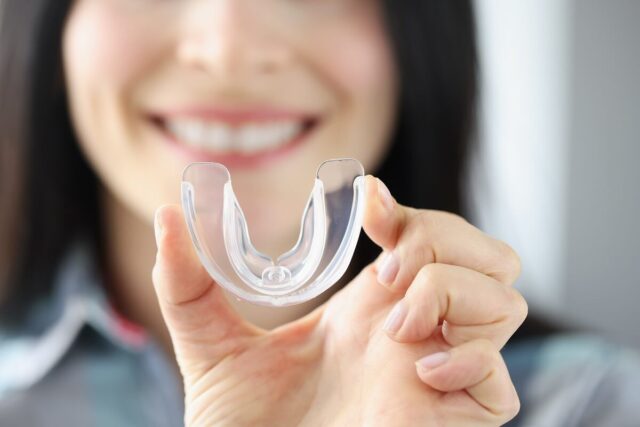
Maintaining a radiant smile isn’t just about good looks; it’s an investment in your well-being and budget. A strong set of teeth and healthy gums can save you from vast dental bills down the road and contribute to overall health.
But how do you ensure that your dental health is up to par without breaking the bank?
Here’s a great guide to keeping your teeth gleaming and your gums as hearty as your financial portfolio.
The Daily Duo ─ Brushing and Flossing
The cornerstone of oral health begins with the dynamic duo of brushing and flossing. Brushing at least twice a day with a quality fluoride toothpaste cleans plaque and food particles off your teeth, while flossing removes what your brush can’t reach, safeguarding against gum disease and cavities. This isn’t just about dragging a brush across your teeth; consider technique and timing.
Use a soft-bristled brush, angle it at 45 degrees to your gums, and embrace gentle circular motions. As for flossing, it’s the unsung hero that ventures where brushes dare not tread, keeping your gum pockets free of unwelcome guests and your dentist’s invasive tools at bay.
Beyond Whitening ─ The Role of Cosmetic Dentistry

While most people think of teeth whitening when they hear “cosmetic dentist,” this field encompasses much more, offering significant benefits for both the appearance and health of your teeth. Cosmetic dentistry can correct misalignments, fill gaps, and cover up chips, which not only improves how your teeth look but also how they function.
Properly aligned and well-maintained teeth are so much easier to clean. Investing in these treatments can lead to a decrease in future dental costs, making it a financially wise choice. Remember, a smile that looks good is often a smile that feels good.
A Worthwhile Coverage ─ Understanding Dental Insurance
Navigating the waters of dental insurance can be as crucial as the treatment itself, especially when considering long-term dental health strategies. Dental insurance typically covers preventive care — like annual cleanings and check-ups — which are vital for catching issues early and maintaining oral health.
It’s essential to understand what your plan covers and what it doesn’t. For instance, while basic procedures like fillings are often covered, more significant operations and cosmetic treatments might not be. Understanding your coverage limits and out-of-pocket costs can drastically influence your dental care choices and expenses.
For residents of the Old Dominion, pinpointing the best dental insurance in Virginia can mean sifting through various providers to find one that balances cost with coverage, ensuring that your dental health investments are as protected as your financial assets.
Myofunctional Therapy ─ The Muscle Workout You Didn’t Know You Needed

Moving beyond traditional dental care, myofunctional therapy offers a unique approach to oral health by focusing on the muscles of the mouth and face. This therapy involves exercises that train the tongue, lips, and jaw muscles, which can help correct breathing patterns, swallowing techniques, and even posture.
Furthermore, myofunctional therapy is particularly beneficial for those suffering from sleep apnea, teeth grinding, and other oral health issues that traditional dentistry might not address. By improving muscle function, you’re not just enhancing your oral health but also boosting your overall well-being which can lower medical costs.
Diet ─ The Quiet Hero of Oral Health
What you eat is important for you in so many ways. Foods that have calcium and phosphorus, such as dairy products, nuts, and lean meats, can help remineralize teeth. On the other hand, crunchy fruits and vegetables increase saliva production, which plays a critical role in neutralizing the acids produced by mouth bacteria.
Be wary of sugary snacks and beverages, as sugar overfeeds the bacteria that cause tooth decay. Instead, embrace a diet that supports dental health, and your teeth will thank you by serving you well for years to come.
Quit Smoking ─ Clear the Air for Your Oral Health

Smoking’s impact on mouth health is particularly severe. Smoking can lead to significant tooth discoloration, gum disease, and a much higher risk of oral cancer. It affects the way the gum tissue functions and heals, making smokers more susceptible to infections and reducing the blood flow necessary for maintaining healthy gums.
Quitting smoking isn’t just a health imperative but a financial one too. By kicking the habit, you reduce the risk of expensive dental treatments in the future and improve your quality of life. Letting go of cigarettes is a direct investment in your oral and financial health, clearing the air for a healthier lifestyle and a fuller wallet.
Hydration ─ The Simple Secret to Oral Health
Want better oral health? Then drink more water. It’s one of the simplest yet most effective strategies for maintaining oral health. Water helps you easily wash away food particles, reducing the risk of cavities, and it also promotes healthy saliva production, which is crucial for protecting teeth from decay.
Make a habit of sipping water throughout the day, not just for hydration but as a preventive measure against oral health issues. This habit can save you from future dental procedures, making it a zero-calorie solution that benefits both your health and your wallet.
Embrace Mouthguards ─ Protect Your Investment

For those who participate in sports or have issues with teeth grinding (bruxism), wearing a mouthguard can be a crucial protective measure. Sports activities can be a great risk to your teeth, and injuries can lead to costly dental repairs. Similarly, grinding can wear down teeth, damage enamel, and lead to painful jaw disorders.
A custom-fitted mouthguard designed by a dental professional offers protection prevents injuries, and saves money in potential future dental repairs. This small investment in a mouthguard can safeguard your teeth and your finances by preventing the need for extensive dental work.
Conclusion
Taking care of your teeth and gums is a multifaceted effort that involves more than just daily brushing and flossing. It includes understanding and utilizing dental insurance wisely, maintaining a healthy diet, quitting harmful habits like smoking, staying hydrated, and using protective gear like mouthguards.
Each of these strategies not only promotes oral health but also protects your financial health by reducing the need for costly dental treatments. Remember, a healthy smile isn’t just about looking good—it’s about saving money, too. Embrace these practices and keep both your smile and your bank account in great shape.







